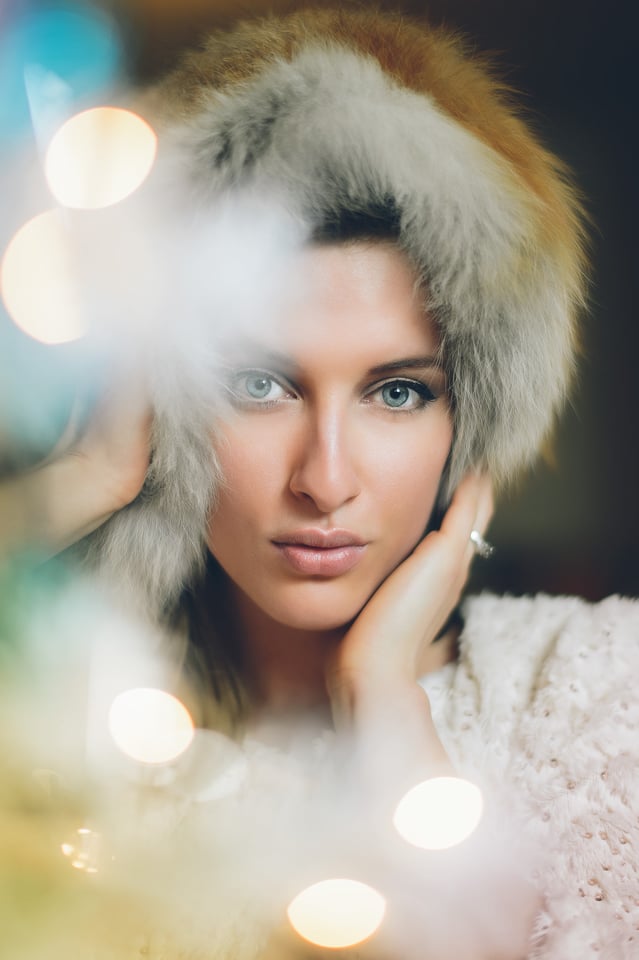مزايا تبديل أنظمة الكاميرا
The Perks of Switching Camera Systems
يعد اختيار نظام الكاميرا الأول أمرًا مثيرًا. لم قد لا يكون؟ يمكنك اختيار أول كاميرا تشتريها، وأول عدسة، وتقضي الكثير من الوقت في قراءة التقييمات والمنتديات وطلب النصائح من الأصدقاء. أعلم أنني فعلت ذلك - منذ حوالي ثماني سنوات، كنت معجبًا بكاميرات مثل Canon 30D و40D، وكنت أتطلع بجدية إلى كاميرا 400D التي كانت في ذلك الوقت ضمن ميزانية مراهقتي. لقد بدت كاميرا Nikon D200 خارج هذا العالم، وكانت كاميرا D300 التي تم الإعلان عنها آنذاك بمثابة كاميرا الأحلام. كل هذه النماذج، التي عفا عليها الزمن الآن من الناحية التكنولوجية (تشبه إلى حد كبير كاميرا D700 التي أملكها الآن وأحبها)، كانت مرغوبة مثل أي جهاز حالي يمكنك التفكير فيه. وربما أكثر من ذلك، نظرًا لأن دورة التحديث كانت أطول والتصوير الرقمي بشكل عام ليس منتشرًا كما هو اليوم.
نعم، يعد اختيار الكاميرا والعدسة الأولى أمرًا مثيرًا للغاية. ولكن، حتماً، وعند نقطة ما، ينشأ سؤال مختلف بالنسبة لنا جميعاً تقريباً، وسؤال أقل متعة بكثير - هل يجب أن تلتزم بقرارك الأول أم أن العشب أكثر اخضراراً في مكان آخر؟

جدول المحتويات
قانون القفز السريع، الإثارة، الجدية بشأنه، المشاعر مهمة، نظامان ليسا بالأمر السيئ، مسألة السعر، الكلمات النهائية
The choice of the first camera system is an exciting one. Why would it not be? You get to pick the first camera to buy, the first lens, and you spend so much time reading reviews, forums and asking friends for advice. I know I did – some eight years ago, I was admiring such cameras as the Canon 30D and 40D, and was seriously eyeing the 400D which was then within the budget of a teenager me. Nikon D200 looked out of this world and the then-announced D300 was a camera of dreams. All of these models, now obsolete from a technological standpoint (much like the D700 I now own and love), were as desirable as any current equipment you can think of. Maybe even more so, since the refresh cycle was longer and digital photography in general not as widespread as it is today.
Yes, the choice of the first camera and lens is a very exciting one. But, inevitably and at some point, a different question arises for just about all of us, and one much less pleasant – should you stick with your first decision or is the grass truly greener somewhere else?

Table of Contents
The Perks of Switching Camera Systems
يعد اختيار نظام الكاميرا الأول أمرًا مثيرًا. لم قد لا يكون؟ يمكنك اختيار أول كاميرا تشتريها، وأول عدسة، وتقضي الكثير من الوقت في قراءة التقييمات والمنتديات وطلب النصائح من الأصدقاء. أعلم أنني فعلت ذلك - منذ حوالي ثماني سنوات، كنت معجبًا بكاميرات مثل Canon 30D و40D، وكنت أتطلع بجدية إلى كاميرا 400D التي كانت في ذلك الوقت ضمن ميزانية مراهقتي. لقد بدت كاميرا Nikon D200 خارج هذا العالم، وكانت كاميرا D300 التي تم الإعلان عنها آنذاك بمثابة كاميرا الأحلام. كل هذه النماذج، التي عفا عليها الزمن الآن من الناحية التكنولوجية (تشبه إلى حد كبير كاميرا D700 التي أملكها الآن وأحبها)، كانت مرغوبة مثل أي جهاز حالي يمكنك التفكير فيه. وربما أكثر من ذلك، نظرًا لأن دورة التحديث كانت أطول والتصوير الرقمي بشكل عام ليس منتشرًا كما هو اليوم.
نعم، يعد اختيار الكاميرا والعدسة الأولى أمرًا مثيرًا للغاية. ولكن، حتماً، وعند نقطة ما، ينشأ سؤال مختلف بالنسبة لنا جميعاً تقريباً، وسؤال أقل متعة بكثير - هل يجب أن تلتزم بقرارك الأول أم أن العشب أكثر اخضراراً في مكان آخر؟

جدول المحتويات
قانون القفز السريع، الإثارة، الجدية بشأنه، المشاعر مهمة، نظامان ليسا بالأمر السيئ، مسألة السعر، الكلمات النهائية
The choice of the first camera system is an exciting one. Why would it not be? You get to pick the first camera to buy, the first lens, and you spend so much time reading reviews, forums and asking friends for advice. I know I did – some eight years ago, I was admiring such cameras as the Canon 30D and 40D, and was seriously eyeing the 400D which was then within the budget of a teenager me. Nikon D200 looked out of this world and the then-announced D300 was a camera of dreams. All of these models, now obsolete from a technological standpoint (much like the D700 I now own and love), were as desirable as any current equipment you can think of. Maybe even more so, since the refresh cycle was longer and digital photography in general not as widespread as it is today.
Yes, the choice of the first camera and lens is a very exciting one. But, inevitably and at some point, a different question arises for just about all of us, and one much less pleasant – should you stick with your first decision or is the grass truly greener somewhere else?

Table of Contents








تعليق